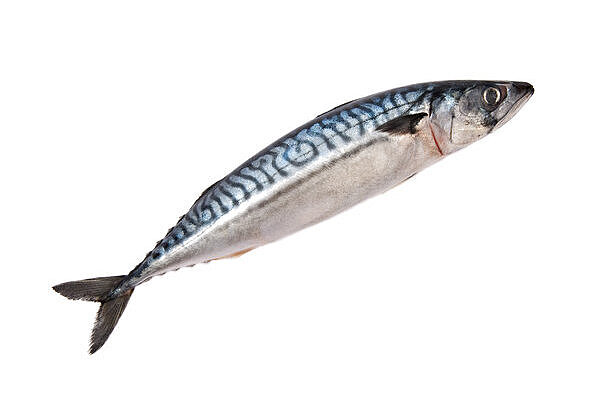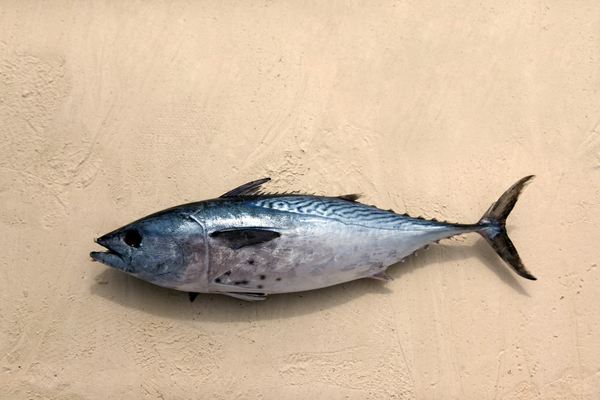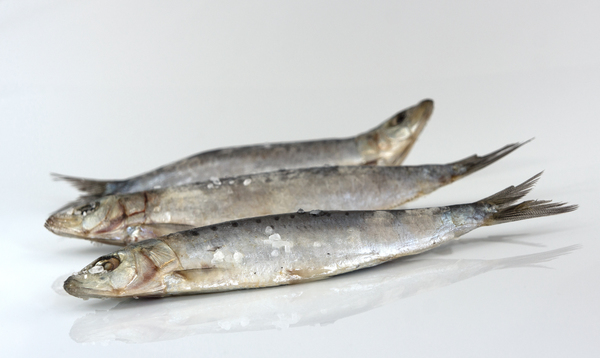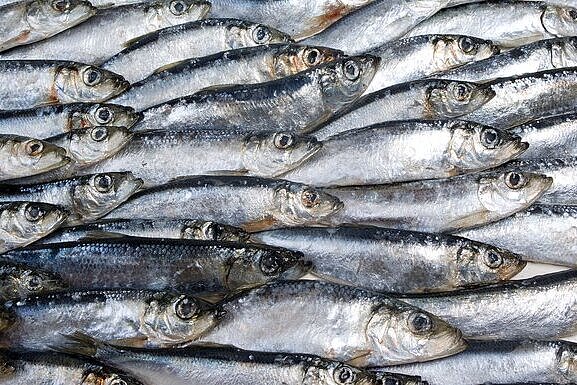Horse mackerel
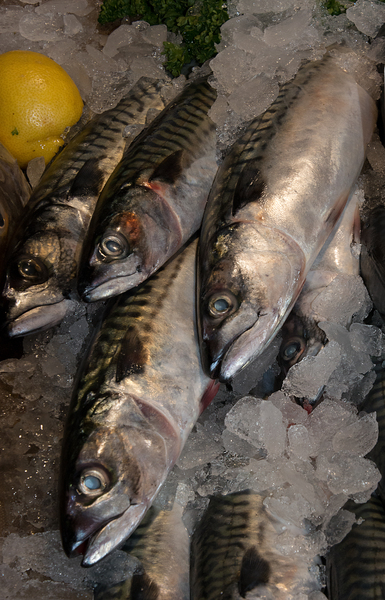
What is the horse mackerel?
The horse mackerel is a marine fish from the spiny mackerel family. It has an elongated body with a dark blue to green upper side and a silvery underside. It has a row of small scales with spines on the sides. It is also called horse mackerel, horse mackerel or suri.
The horse mackerel is found along the coasts of the north-east Atlantic from Norway to South Africa and in the Mediterranean. It feeds mainly on small fish, crustaceans and molluscs. It can grow up to 70 cm long and weigh 2 kg, but is usually smaller.
What are the benefits of horse mackerel for dogs?
Horse mackerel is a healthy fish for dogs because it contains a lot of protein, omega-3 fatty acids, vitamin B12, selenium and iodine. These nutrients are important for the dog's muscles, cardiovascular system, immune system, thyroid gland and nervous system.
Omega-3 fatty acids also have an anti-inflammatory effect and can help with skin problems, allergies or joint problems. Vitamin B12 promotes the formation of red blood cells and can be helpful in cases of anaemia or loss of appetite.
What are the disadvantages of horse mackerel for dogs?
Horse mackerel also has disadvantages for dogs. On the one hand, it can contain harmful substances such as mercury or dioxins, which can accumulate in the fatty tissue of the fish. These harmful substances can be harmful to health if ingested in large quantities and can lead to nerve, liver or kidney damage.
On the other hand, horse mackerel can have bones that can harm your dog. The bones can get stuck in the mouth or throat or injure the gastrointestinal tract. You should therefore always examine the fish carefully and remove all bones before giving it to your dog.
How can you prepare horse mackerel for your dog?
You can give your dog horse mackerel raw or cooked. However, the raw fish should be fresh and come from a trustworthy source. You should also freeze it beforehand (at least 24 hours at -20°C) to kill any parasites.
The fish is simply cooked in water without salt or seasoning. You can also mix it with some vegetables or rice to make a complete meal. However, make sure that fish is not on the menu too often (no more than twice a week) and does not make up more than 10 % of your daily calorie intake.
Horse mackerel is a healthy fish for dogs that provides many important nutrients. However, you should pay attention to the origin of the fish and always remove any bones thoroughly.
Properties 7
Are you looking for other ingredients with a specific property?
Just click on them to find more.
If you notice any signs of hypersensitivity or poisoning in your dog, you should see your vet immediately. We are not a substitute for a vet, but we try to be as accurate as possible. Every dog reacts differently and we recommend you get a second opinion or consult your vet if in doubt.
Stay healthy and take good care of your four-legged friend!😊
Similar to Horse mackerel
Mackerel has many benefits for dogs that can promote both physical and mental health. Here are some of them: Mackerel is a high-quality source of protein, which is important for muscle building,...
Tuna is a large, fast and powerful fish that can be found in all the world's oceans. It belongs to the mackerel family and can grow up to three meters long and weigh 600 kilograms. Tuna is mainly...
Sardines are fish that grow to between 10 and 25 centimetres in length and are found in many of the world's oceans. They feed mainly on plankton and are even hunted by larger fish, birds and marine...
Herring are a bony fish that can be found in almost all of the world's oceans. The best-known representative is the Atlantic herring, which is also caught in the North and Baltic Seas. Herring grow...
